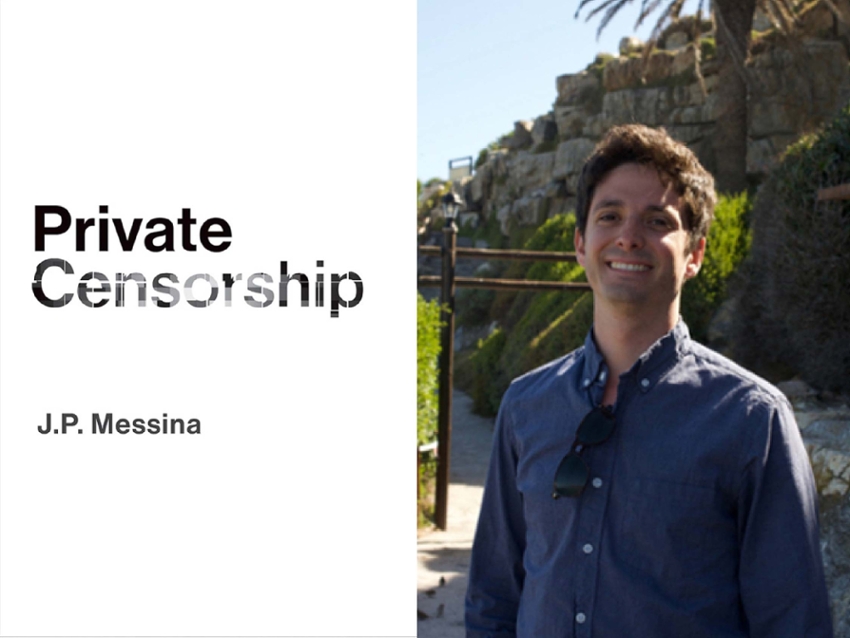Featured Publication: Private Censorship

Publication Title
Author
Publisher
Oxford Academic
Publication Date
September 28, 2023
About the Book (from the publisher)
Concerns about censorship have once again reached a fever pitch across the liberal West. In other historical periods, such concerns may have marked reactions to book bans and burnings. Often, they followed prosecutions and subsequent jailtime for things spoken or written. During the red scare, they were the hushed response to chilling state-sponsored watch-lists and employer-supported blacklists designed to ensure victory against communism. Against this history, complaints about the new censorship appear different. With respect to the new censorship, there are no books burnings, no prosecutions, no laws or committees. Indeed, there is no coercive state involvement at all. With a few notable exceptions, complaints about censorship in the 21st-century West are complaints about the behavior of private parties: social groups, employers, media conglomerates, social media platforms, and search engines. To better understand the concerns surrounding non-state interference with speech, Private Censorship offers an account of censorship, as well as an assessment of the ethical and political issues it raises across contexts. In addition, the book casts a critical eye on many popular proposals for responding to these complaints. Unlike these popular approaches, Private Censorship foregrounds the importance of rights to property, association, and free expression.
About the Author
JP Messina is an assistant professor in the Department of Philosophy. He offers courses in moral and political philosophy, the ethics of data science, the history of practical philosophy. In addition to teaching responsibilities in the philosophy department, Messina teaches in the college’s Cornerstone Program. Before joining the faculty at Purdue, he held research positions at the University of New Orleans and Wellesley College. He received his Ph.D. from UC San Diego in 2018.
Messina's research asks questions about human freedom across philosophical contexts. For example: are human beings free in the sense necessary to ground attributions of deservingness and the retributive institutions that presuppose them? And what is the status of retributive norms and institutions in political societies characterized by profound disagreement about the answer to this question? What grounds political authority, i.e., the right to rule, and how could such authority be consistent with human autonomy? Supposing that political authority can be justified, what are its limits and what duties do authorities have to outsiders? What (if anything) explains the human normative capacity to acquire property in external things, given that such acquisitions limit the freedom of non-owners? What is free speech, how is it threatened, and why should we care? In addition to addressing such questions from a contemporary perspective, Messina has written extensively in various (perhaps futile) attempts to better understand Immanuel Kant's distinctive approach to them.
His work has appeared in several scholarly venues, including Philosophers' Imprint, the Canadian Journal of Philosophy, the Journal of Applied Philosophy, Politics, Philosophy, and Economics, Kantian Review, and the British Journal for the History of Philosophy.